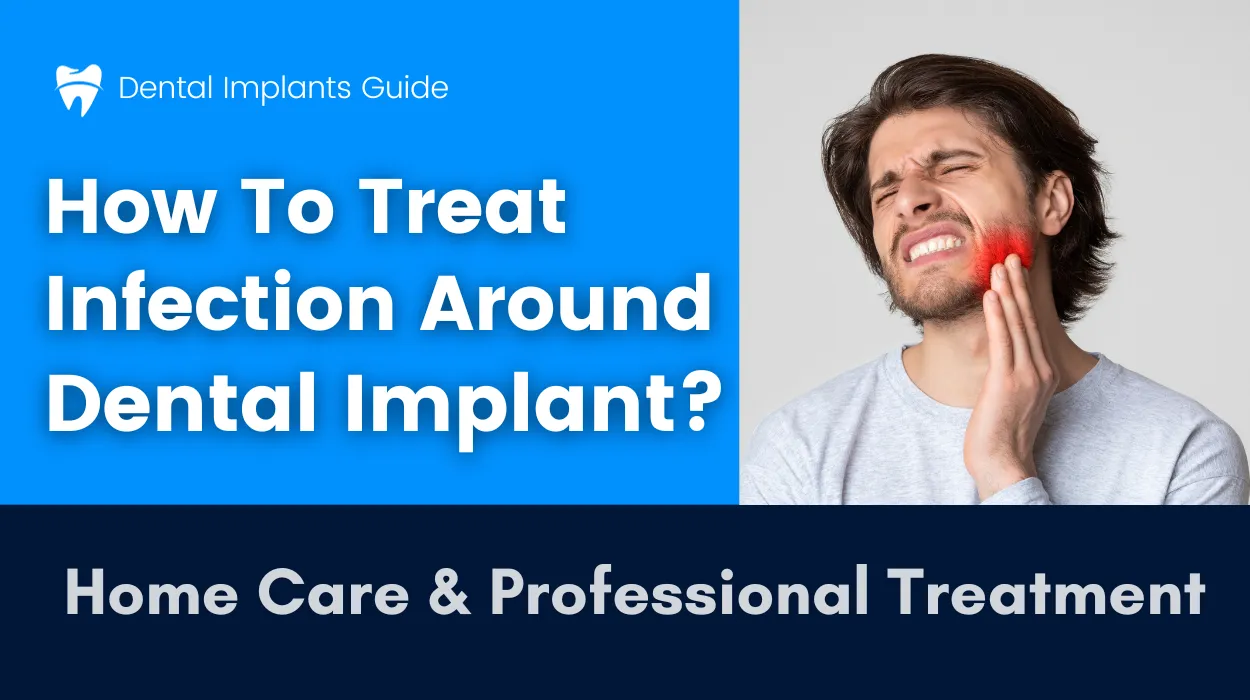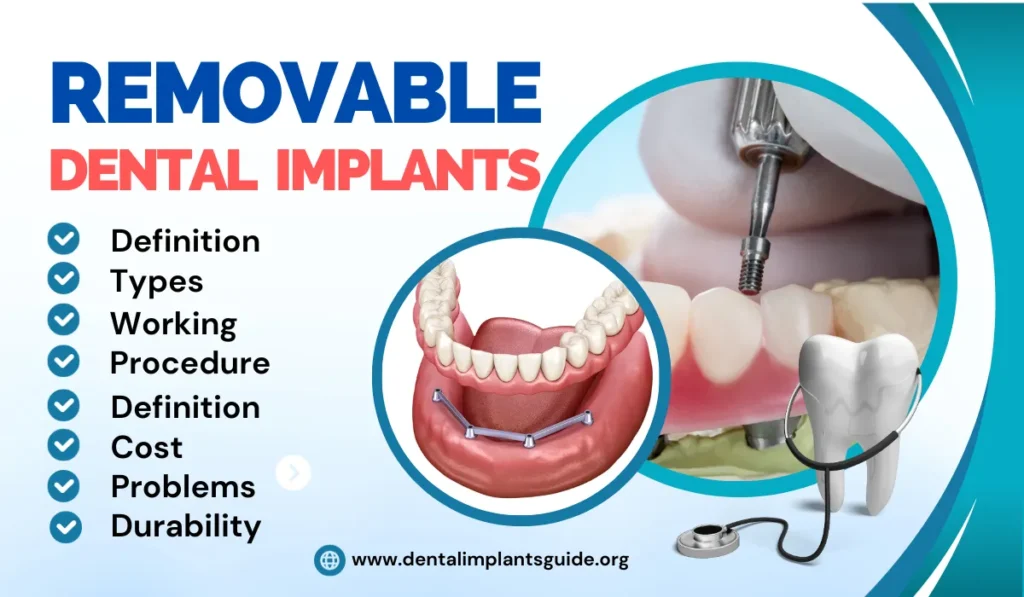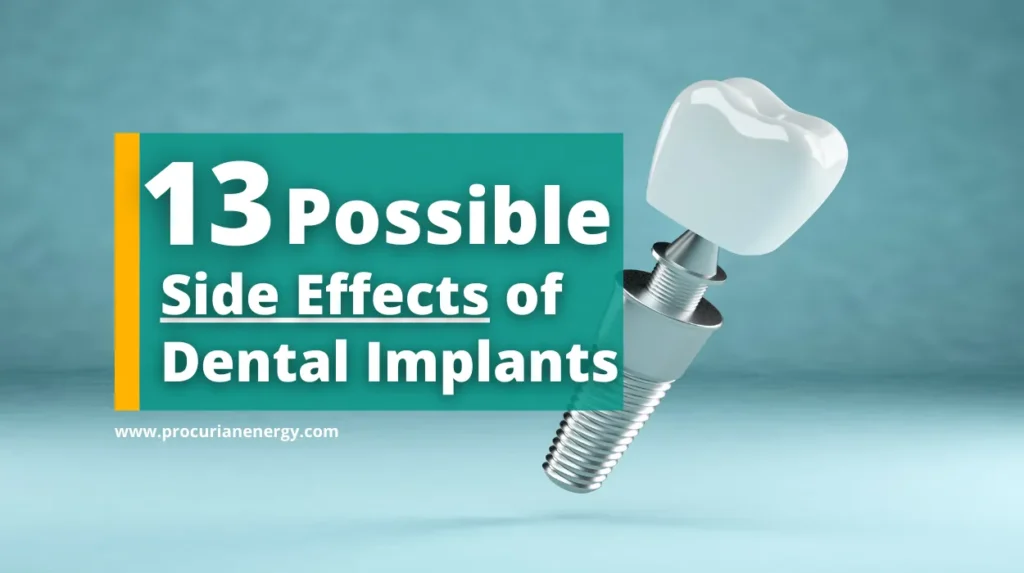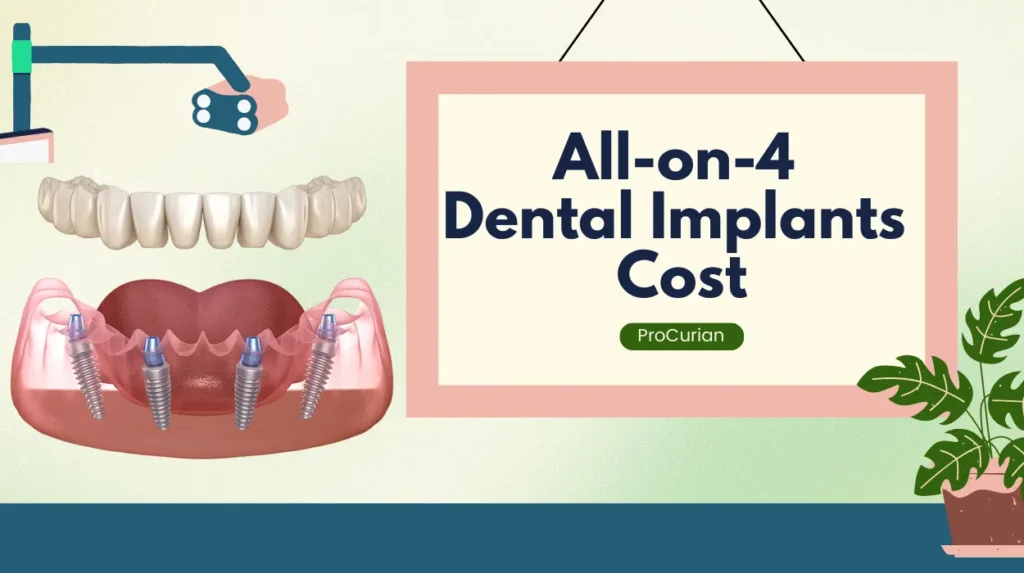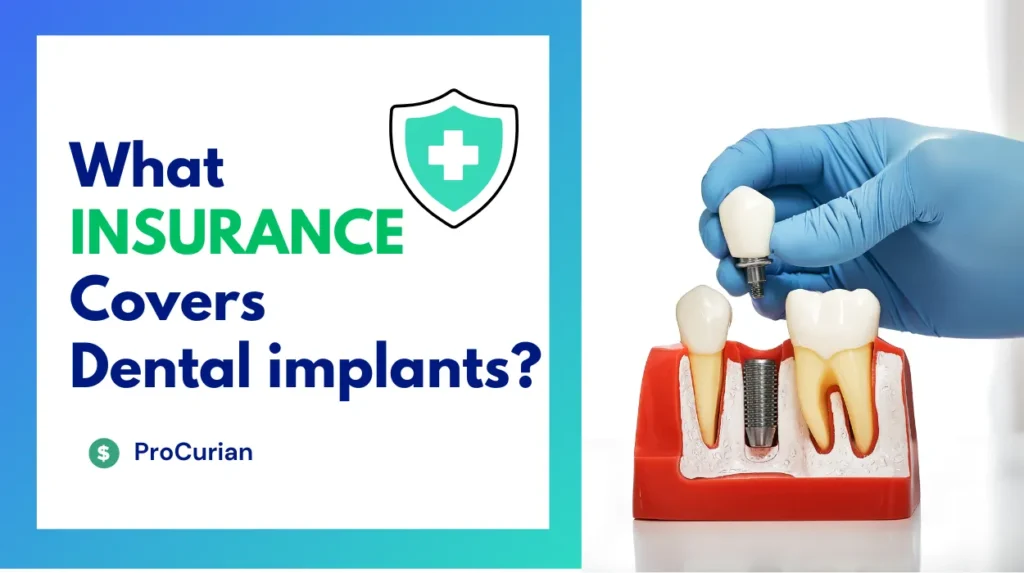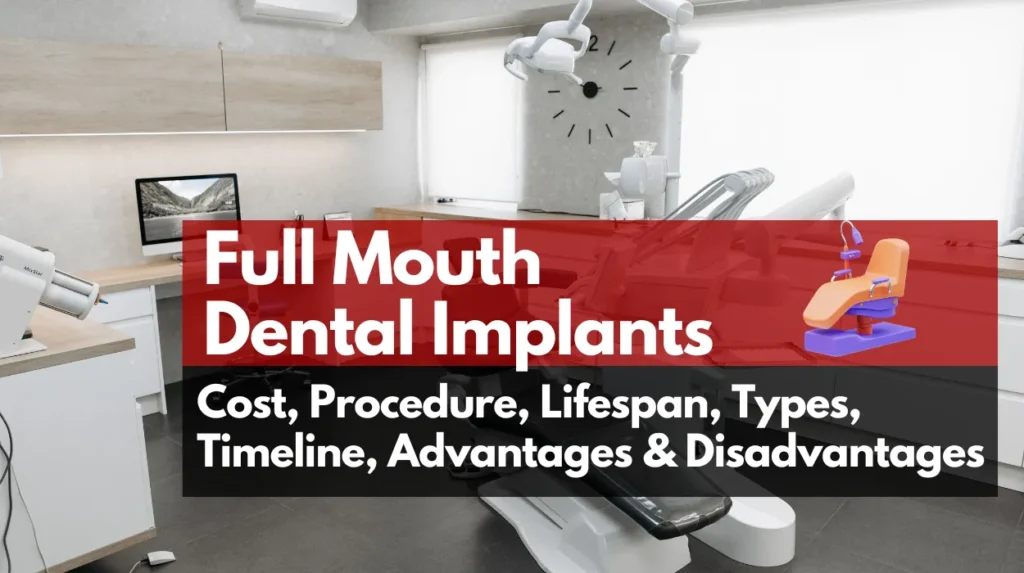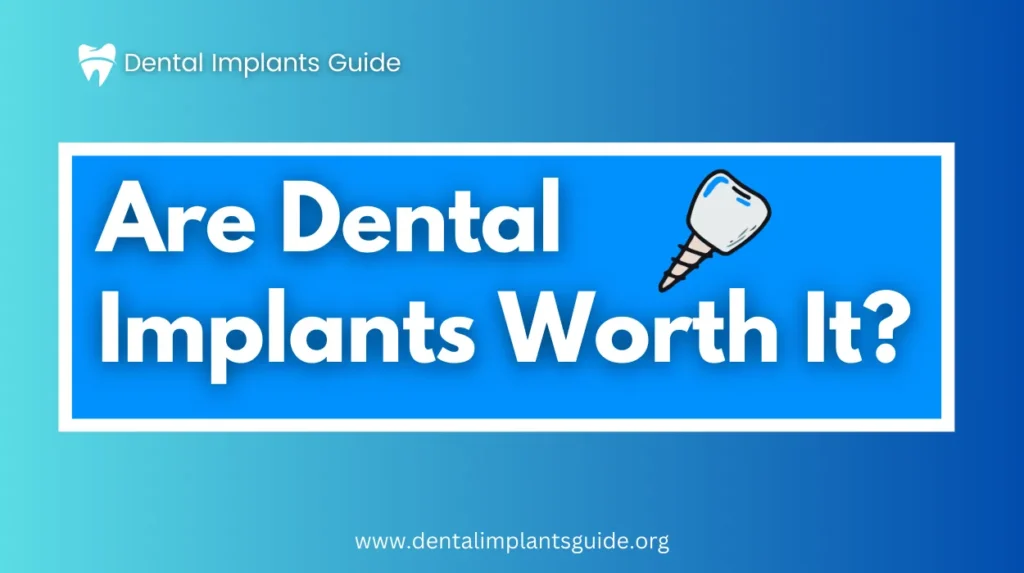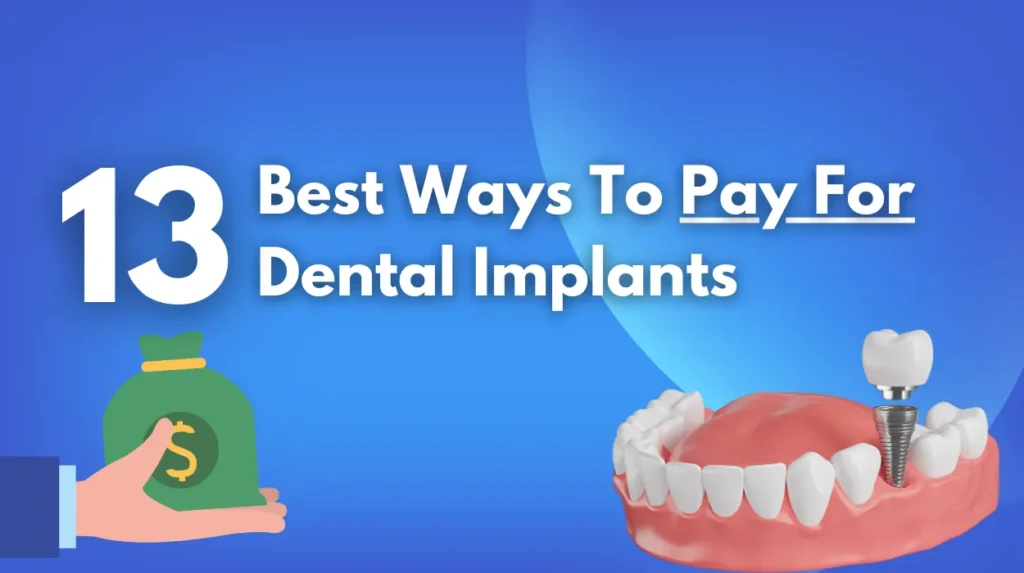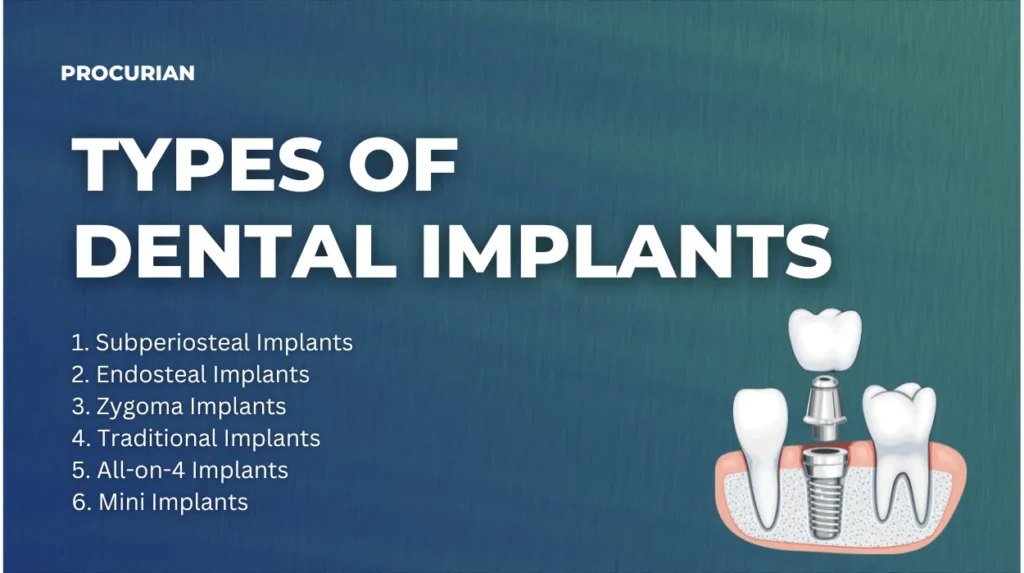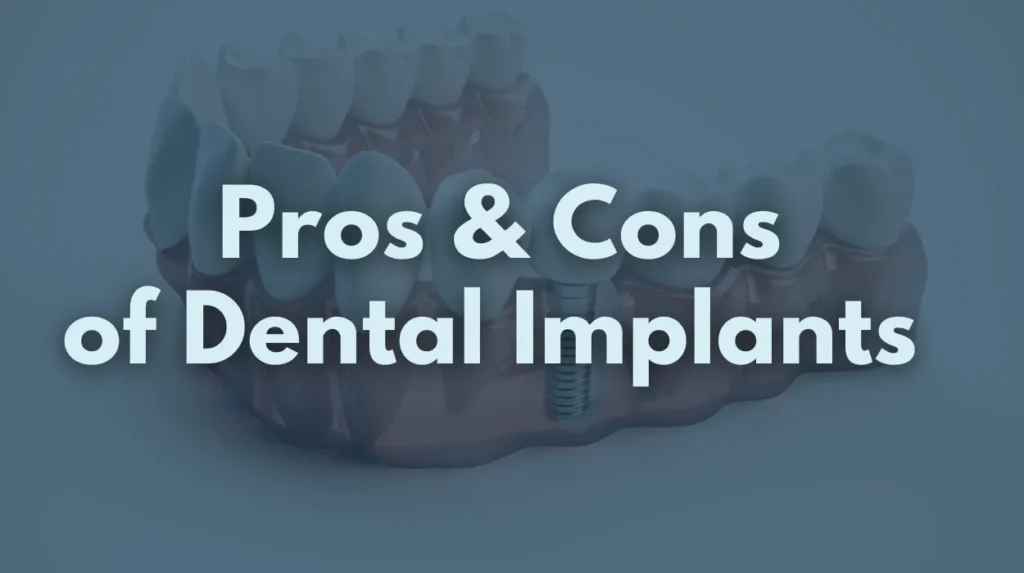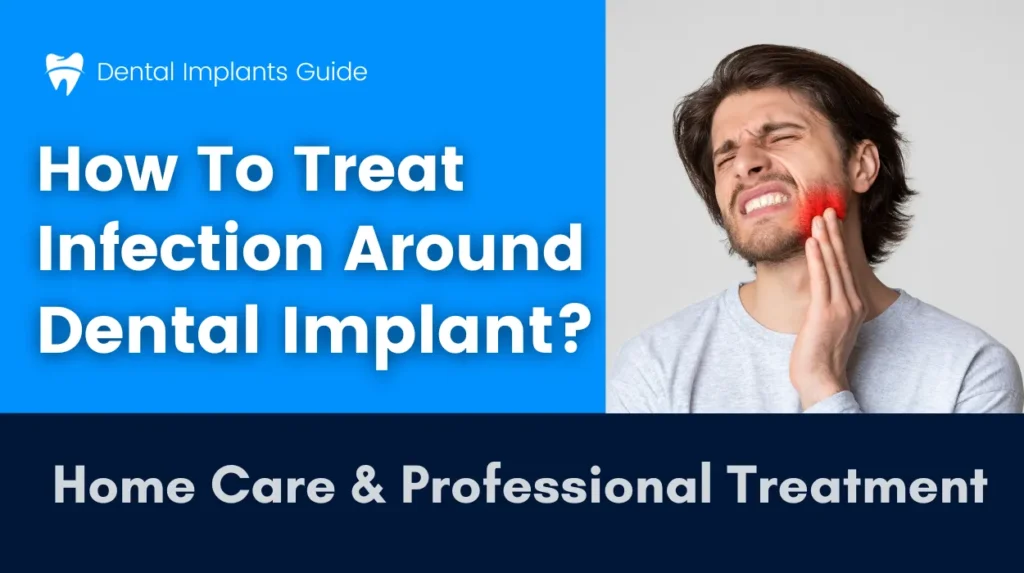
Hey there, dear readers! If you’re reading this article, you might be facing a common dental issue – infection around a dental implant.
Don’t worry at all. You’re not alone in this. Infections around dental implants can happen, but with the right knowledge and care, you can address them effectively.
In this guide, I’ll walk you through everything you need to know about treating infections around dental implants.
Infection Around Dental Implants
Infections around dental implants can occur when bacteria find their way into the tissues around the implant.
This can lead to discomfort, pain, and even jeopardize the success of your implant. But don’t fret; there are steps you can take to address this issue.
Related Article ➦ How to Heal Faster After Dental Implants?
Symptoms of an infection around a dental implant
The following are some symptoms of an infection around a dental implant:
- Redness and inflammation around the implant site
- Swelling of the gums and face
- Pain and tenderness around the implant
- Drainage of pus from the implant site
- Difficulty chewing or swallowing
- Bad breath
- Loose or wobbly implant
How to treat an infection around a dental implant?
Here are the treatment options for infection around a dental implant.
1. Home Care

1.1 Good Oral Hygiene
Step up your oral hygiene game. Brush twice a day using a soft-bristle toothbrush and floss gently around the implant.
1.2 Saltwater Rinse
Rinse your mouth with warm saltwater (1/2 teaspoon of salt in 8 ounces of water) several times a day. This can help reduce inflammation.
1.3 Stay Hydrated
Drinking plenty of water can help flush out toxins and support your body’s natural healing processes.
2. Antibiotics
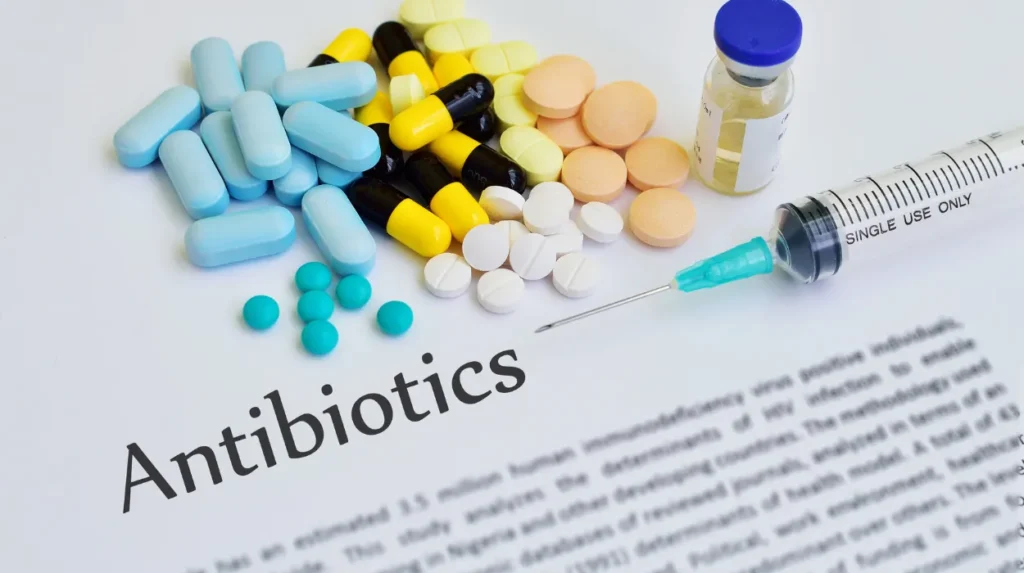
In some cases, your dentist may prescribe antibiotics to fight the infection. Follow your dentist’s instructions carefully and complete the full course of antibiotics even if you start feeling better.
Must See ➦ How Long Should I Take Antibiotics After Dental Implant?
3. Professional Treatment
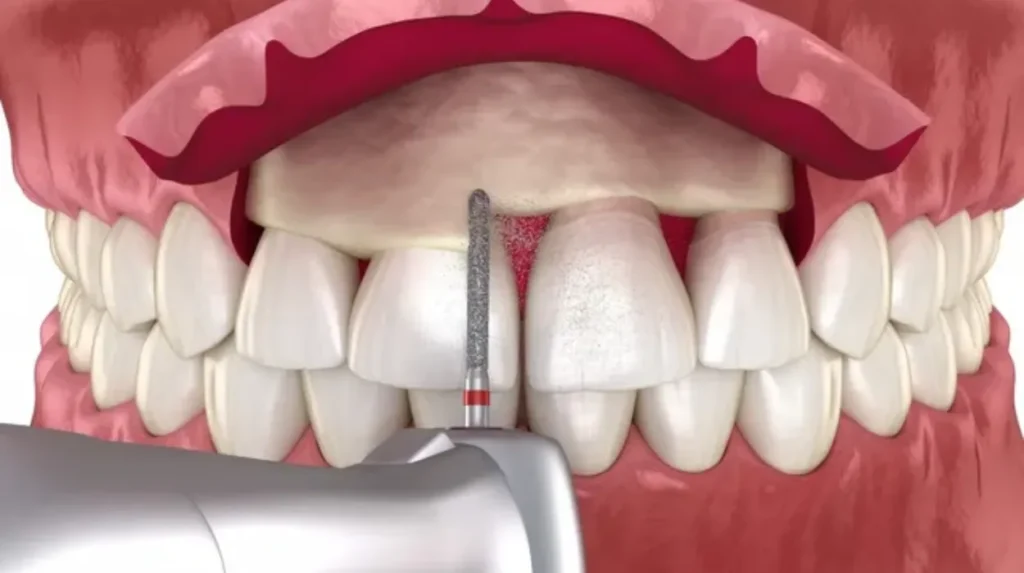
If the infection persists or worsens, it’s time to seek professional help. Your dentist may recommend one of the following procedures:
3.1 Implant Debridement
This involves cleaning the infected area and removing any compromised tissue. It may be followed by the application of antibiotics directly to the site.
3.2 Implant Removal
In severe cases, your dentist may need to remove the implant temporarily to allow the area to heal properly. Once the infection is under control, a new implant can be placed.
3.3 Bone Grafting
If the infection has caused bone loss, a bone graft may be necessary to rebuild the support structure for the implant.
3.4 Flap Surgery
In severe cases, your dentist might recommend flap surgery to access and clean the infected area more thoroughly. This procedure is usually done under local anesthesia.
Related Article ➦ Pros and Cons of Dental Implants
What antibiotic is best for dental implant infection?
The best antibiotic for a dental implant infection is the one that is most effective against the bacteria that is causing the infection. Some of the most common antibiotics used to treat dental implant infections are:
- Amoxicillin
- Clindamycin
- Metronidazole
- Ciprofloxacin
How do you treat implantitis?
There are two main types of implantitis treatment: nonsurgical and surgical.
● Nonsurgical treatment
Nonsurgical treatment is usually the first line of treatment for implantitis. It involves cleaning the implant and surrounding gums to remove plaque and bacteria. This may be done using special dental instruments, ultrasonic devices, or lasers. In some cases, the dentist may also prescribe antibiotics or mouthwash to help kill the bacteria.
● Surgical treatment
If nonsurgical treatment is not successful, or if the implantitis is severe, surgical treatment may be necessary. Surgical treatment involves lifting back the gum tissue to access the implant. The dentist will then clean the implant and remove any infected tissue or bone. In some cases, the dentist may also place a bone graft to help rebuild lost bone.
Note: After treatment, it is important to practice good oral hygiene to prevent implantitis from recurring. This includes brushing and flossing twice a day and visiting the dentist for regular checkups and cleanings.
What is a soft tissue infection around a dental implant?
A soft tissue infection around a dental implant is a form of gum disease that affects the soft tissues around the implant.
The gums, ligaments, and bones are all included. Bacteria that accumulate around the implant can cause infection if it is not properly cleaned.
Related Article ➦ 8 Common Dental Implants Problems
Can infection cause dental implant failure?
Yes, an infection can cause dental implant failure. When there’s an infection around a dental implant, it can damage the bone and tissues that hold the implant in place. This can lead to the implant becoming loose or unstable, ultimately causing it to fail
FAQs
What is a dental implant infection?
A dental implant infection is when bacteria cause problems around your dental implant.
How do I know if I have an implant infection?
Look out for signs like swelling, pain, redness, pus, or implant looseness.
Can I use home remedies for an implant infection?
Yes, you can try saltwater rinses, turmeric paste, and probiotics to help, but consult your dentist too.
What antibiotics are used for implant infections?
Dentists often prescribe antibiotics like amoxicillin or clindamycin.
Can the dental implant be removed if there’s an infection?
Yes, sometimes the implant needs to be removed temporarily for treatment.
How long does it take to recover from an implant infection?
It takes 7 to 10 days to to recover from an implant infection.
What foods should I avoid if I have an implant infection?
Avoid hard, crunchy, or spicy foods that can irritate the implant area.
How often should I rinse with saltwater for an infection?
Rinse with warm saltwater 3 to 5 times a day until the infection improves.
Final Thoughts
Infections around dental implants can be difficult to treat, but with the right care and timely treatment, you can overcome them.
Remember, good oral hygiene and regular dental check-ups are your best defense against implant infections.
Your dental health is essential, and addressing implant infections promptly will help you enjoy the benefits of your dental implant for years to come. Keep those pearly whites shining and your implants healthy!
